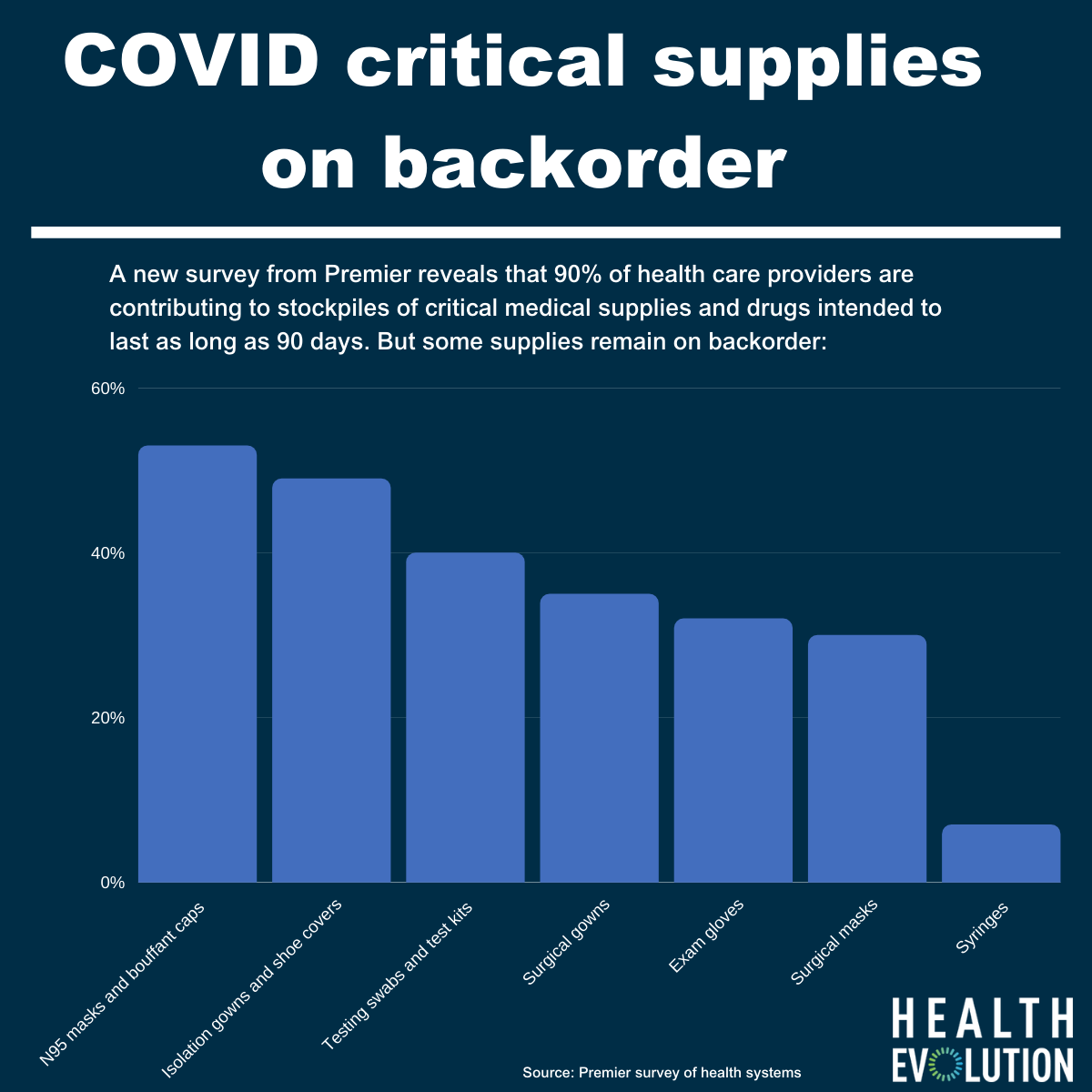The biggest talking point in the first month of the COVID-19 pandemic for health care executives was the lack of personal protective equipment and ventilators.
The U.S. Strategic National Stockpile essentially dried up by the second week of April with reports indicating that 90 percent of the stockpile’s PPE was distributed by early April 8. In an event featuring Connecticut hospital leaders, Jeff Flaks, CEO of Hartford Healthcare, said that hospital was working with the state to build a stockpile of ventilators and other critical equipment in advance of a second wave. “We’re going to be a lot more sensitive in how we manage inventories,” he said.
Many other health care CEOs and leaders have also taken that sentiment to heart as the country continues to deal with the pandemic. A recent survey from Premier reveals that 90 percent of health care providers are contributing to stockpiles of critical medical supplies and drugs intended to last as long as 90 days.
Unfortunately, there are still a lot of supplies that are on backorder that can’t be stockpiled right now. At the top of the list? N95 masks and bouffant caps, which were cited by 53 percent of respondents as being heavily backordered. (Full list above).
“During the pandemic, the nation experienced a fragmented approach to securing supply that led to competition rather than coordination. States and health systems need to feel confident in their ability to access an emergency stock of supplies, but absent a clear national strategy, we risk not being able to support providers through a regional surge in cases,” stated Blair Childs, Senior Vice President of Public Affairs at Premier.
Childs comments echo Mark Laret, CEO of UCSF Medical Center, who said at a Health Evolution executive briefing: “I hope a lesson is that we truly federalize the approach to PPE management because there’s unevenness across the country.”
AdventHealth CEO Terry Shaw added: “I think the supply chain disruption and the ability to only get something from one place in the country or the world is going to change dramatically as we think about supply chain on a go-forward basis.”
Premier recommends the Strategic National Stockpile (SNS) work with private sector partners to create a streamlined and efficient process for states to access supplies and drugs. The company also recommended the SNS maintain a minimum 90-day supply of critical medical supplies and drugs, as dictated by surge demand from hotspots such as New York and Washington.











